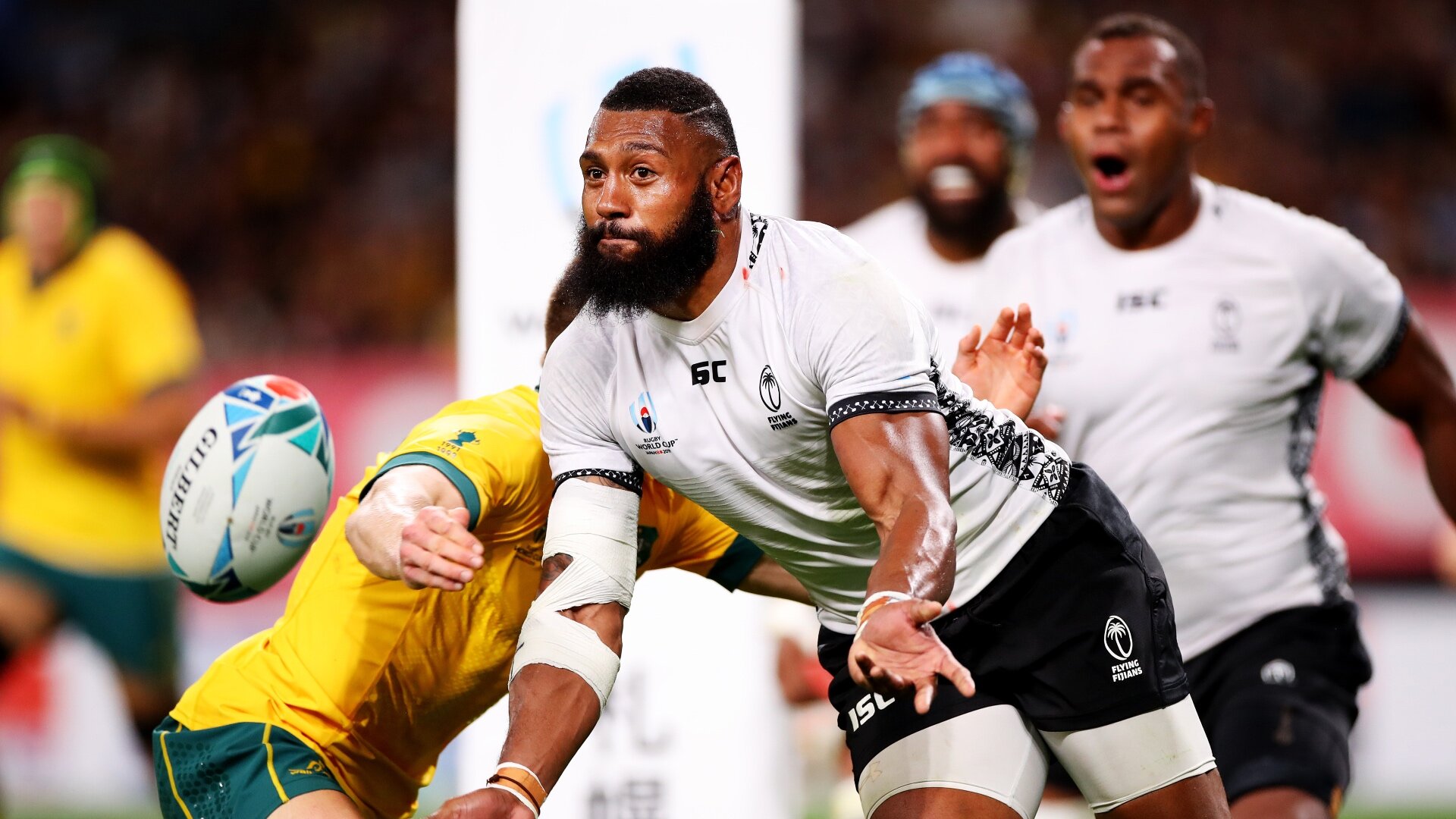Fiji show promise and weakness in sublime and frustrating fashion

In one of the must-watch matches of the opening weekend of the 2019 World Cup, Fiji flashed their promise and weakness in an equally sublime and frustrating fashion on Saturday.
The Flying Fijians went down to a 39-21 loss to Australia at the Sapporo Dome, despite taking a 14-12 lead into the interval and backing it up with a swift try from Waisea Nayacalevu five minutes into the second half. In fact, for much of the first half Fiji looked a more than ample match for the Wallabies.
Unfortunately for John McKee and his side, Michael Cheika and his charges were able to diagnose the threat Fiji posed, adapt their own game and rather proficiently counter it. Early on, Australia engaged Fiji in their free-flowing, high-tempo style of play, something which suited the islanders down to the ground. It was a 30-minute period of rugby that Fiji were born to excel at.
Peceli Yato was effervescent and almost uncontainable in the back row, running riot through the Australian defence, while Levani Botia was the spearhead of a defensive line that was consistently shutting down and forcing the Wallabies into errors.
Those two players alone were winning the gain line battle with Australia and it gave Fiji the quick ball in attack and slow ball in defence that allowed the whole team to impress. In addition to that early defensive line speed and carries over the gain line, Fiji’s breakdown work was accurate and efficient, providing opportunities to attack in transition, while their attacking lineout was also a solid foundation from which to launch offensive forays.
(Continue reading below…)
Hooker Sam Matavesi and the forwards mixed it up nicely, throwing long beyond the lineout and then catching the Australian defence unawares with an inside ball, or going short to the first man and testing out the Wallabies close to the touchline.
Other positives included Ben Volavola’s kicking at goal, which was accurate, their defensive organisation for the first 50 minutes or so and the energy and precision of their chase on the few times they opted to kick and contest. That said, some familiar weaknesses were identified and exploited by Australia, who grew into the game off the back of four set-piece tries.
The Fijian scrum was under pressure throughout the game and although they were able to compete and disrupt on a couple of Australian lineouts, they struggled to stop the subsequent driving mauls. From these bases, the Wallabies were able to prosper through tries from Michael Hooper, Reece Hodge and Silatolu Latu.
. @wallabies captain Michael Hooper praises the Australia "finishers" for making the difference in his sides 39-21 win over @fijirugby #AUSvFIJ#RWC2019 pic.twitter.com/Oe1y9xVei0
— Rugby World Cup (@rugbyworldcup) September 21, 2019
Australia also recognised Fiji’s proficiency in the open spaces and tightened up their game accordingly. Width was replaced by one-out carries and plenty of pick-and-go plays, which softened Fiji up on the inside and not only set up advantages for Australia out wide in subsequent phases but also sapped the energy from the legs of the Fijians.
The concern for Fiji moving forward will be how much of the Georgia and Wales games will revolve around those same tactics. Georgia’s scrum will cause Fiji problems and Wales will likely be even more direct than Australia were. Both sides will be intent on winning the physical contest in the tight rather than engaging Fiji in the loose. The onus is on McKee and his side to be able to force their style of play upon both those teams.
Fiji were also the recipient of their fair share of bad luck, with Hodge’s no arms and high tackle on Yato going unpunished. By law, it was an indisputable red card. Not only did Australia avoid going down to 14 men, it also sent Yato from the pitch with the back row having been imperious to that point. There’s no point playing hypothetical games as it won’t change the result for Fiji, but they can certainly feel hard done by.
Who will have a better game, Kerevi or Radradra? Join the match coverage of Fiji and Australia in RugbyPass' match centre: https://t.co/gB4xK8t34d #RWC2019 #AUSvFIJ #SuperSaturday pic.twitter.com/JSn4Qk6Vmy
— RugbyPass (@RugbyPass) September 21, 2019
Fiji have now just three full days of rest before they take on Uruguay, a match they may well be able to do without Yato in, but they will be sweating over the fitness of the talismanic back row ahead of their match with Georgia on October 3.
To keep their hopes of quarter-final qualification alive, Fiji will likely need bonus point wins in both of those contests before they take on Wales on October 9 in what could be a winner-takes-all clash.
While Australia were expected to win in Sapporo, there will be a significant level of frustration in the Fijian camp, with the team having held a lead for such a long period and shown the blueprint for success. Fiji now need to reset and set their focus on the challenges to come. They showed promise on Saturday, but promise alone will not be enough alone to secure them that coveted spot in the knockout rounds.
WATCH: RugbyPass went behind the scenes with the Tonga national team as they prepared for the 2019 World Cup in Japan





































